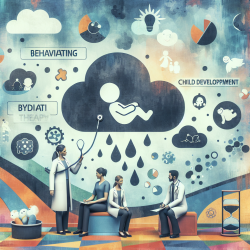As healthcare professionals, particularly those working in pediatric and developmental disciplines, we often encounter children and families grappling with primary nocturnal enuresis (PNE), commonly known as bedwetting. This condition, while not uncommon, can lead to significant stress and emotional distress for both the child and their family. It's crucial that we, as practitioners, stay abreast of the latest research and strategies to address this issue effectively.
Primary nocturnal enuresis is a prevalent condition that affects many children beyond the age when they're expected to have full bladder control during the night. Understanding the multifaceted nature of PNE and the current concepts surrounding its management can significantly improve our practice and the advice we provide to families.
Understanding Primary Nocturnal Enuresis
Primary nocturnal enuresis is defined as nighttime bedwetting in children aged five years or older, who have never achieved consistently dry nights. Various factors contribute to PNE, including genetic predispositions, developmental delays in bladder control, and the production of vasopressin, a hormone that reduces urine production at night.
Research has shown that while a majority of cases resolve naturally over time, the emotional and psychological impact on the child and their family can be profound. Therefore, addressing PNE with empathy, understanding, and evidence-based strategies is paramount.
Integrating Research into Practice
The article "Primary nocturnal enuresis: Current concepts about an old problem" provides valuable insights into understanding and managing PNE. By integrating these research outcomes into our practice, we can offer more targeted and effective interventions. Here are some key takeaways and how they can be applied:
- Comprehensive Assessment: Before initiating any treatment, a thorough assessment is essential to rule out underlying medical conditions. This includes a detailed history, physical examination, and, if necessary, specific tests.
- Behavioral Interventions: Behavioral strategies, such as bladder training, positive reinforcement, and establishing a nighttime routine, are first-line interventions. Encouraging regular bathroom use before bedtime and limiting fluid intake in the evening can also be beneficial.
- Alarm Therapy: One of the most effective treatments for PNE is the use of enuresis alarms. These devices help children become more aware of their bladder filling at night. Consistent use of alarm therapy has been shown to lead to long-term dryness in many cases.
- Medication: In some cases, medication may be considered, especially when other interventions have not been successful. Desmopressin is one commonly prescribed medication that reduces urine production at night. However, it's crucial to discuss the potential side effects and the importance of following the prescribed regimen closely with families.
- Support and Education: Perhaps most importantly, providing support and education to the child and their family is crucial. Understanding that PNE is a common issue that many children overcome can alleviate feelings of shame or embarrassment.
By encouraging further research and staying informed about advancements in the field, we can continue to refine our approach to managing PNE. It's also essential to foster open communication with families, allowing for shared decision-making and tailoring interventions to meet the unique needs of each child.
In conclusion, primary nocturnal enuresis remains a complex condition that requires a multifaceted approach. As practitioners, our role is not only to provide the most current, evidence-based interventions but also to offer reassurance and support to families navigating this challenge. Integrating the outcomes of recent research into our practice empowers us to make a positive impact on the lives of children with PNE and their families.
For those interested in delving deeper into the subject, I highly recommend reading the original research paper. It offers a comprehensive overview of PNE and its management strategies. To read the original research paper, please follow this link: Primary nocturnal enuresis: Current concepts about an old problem.










